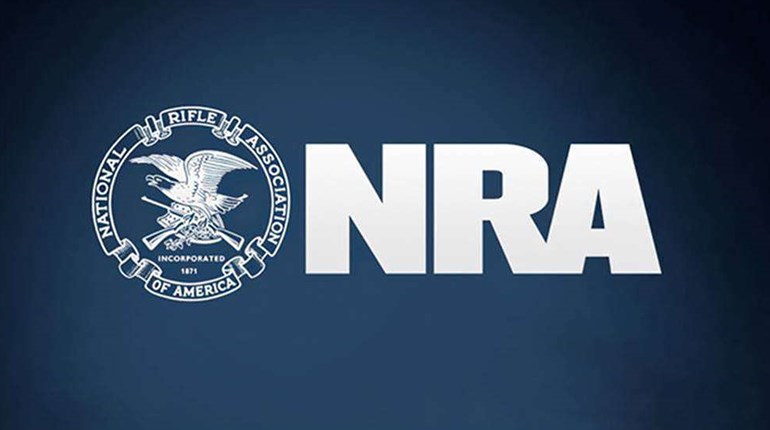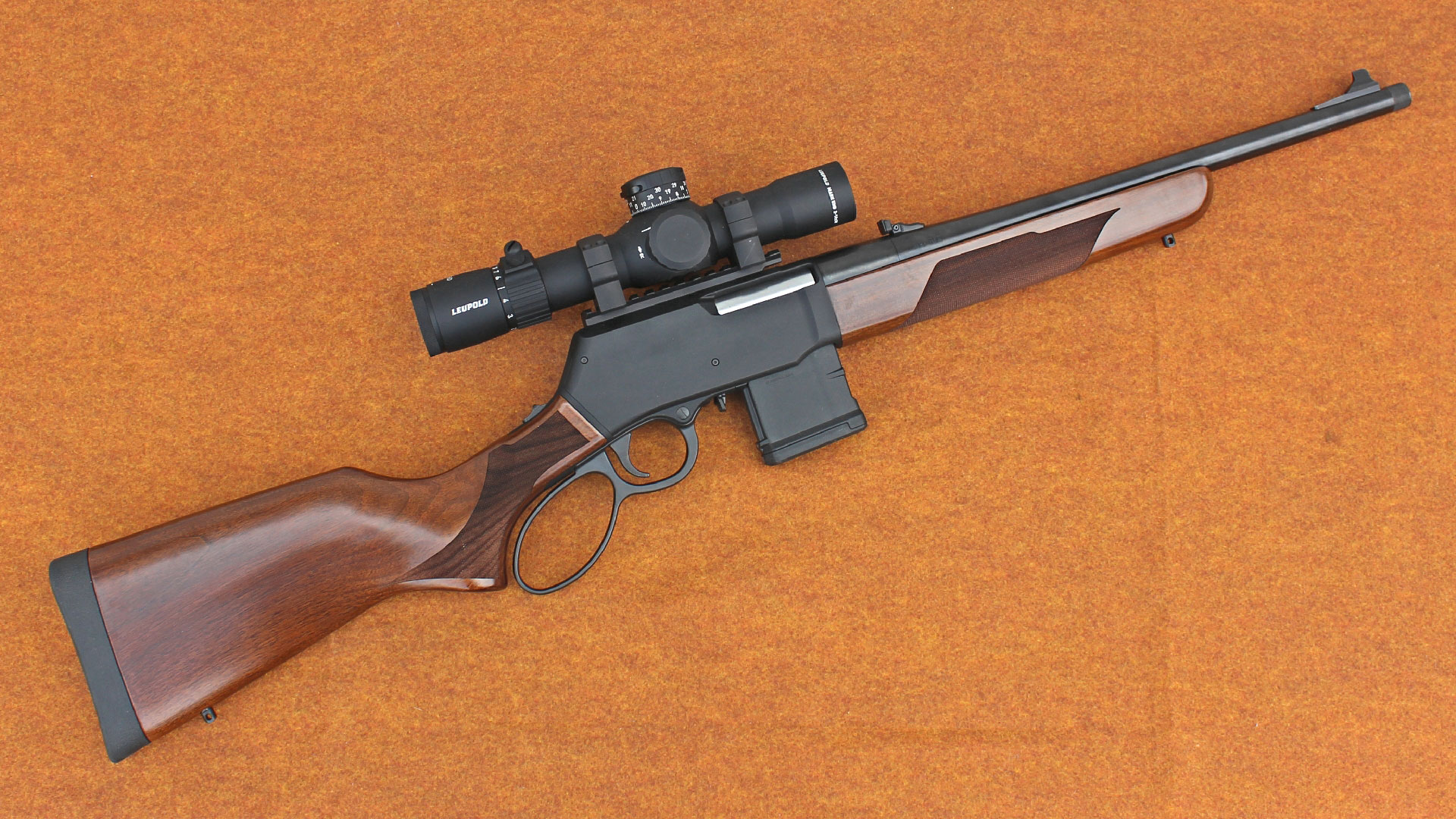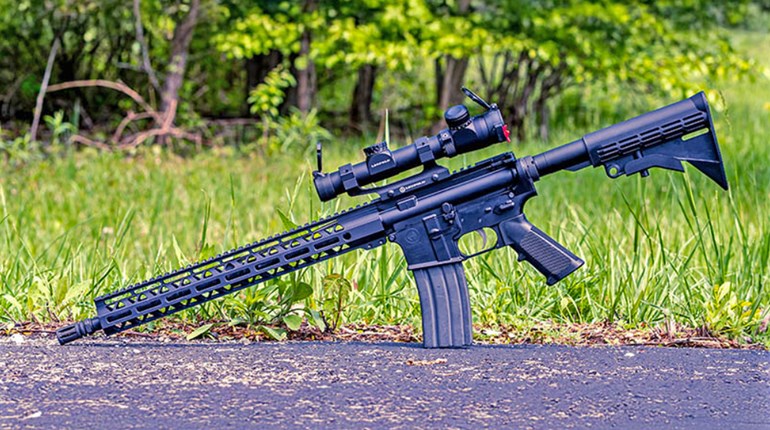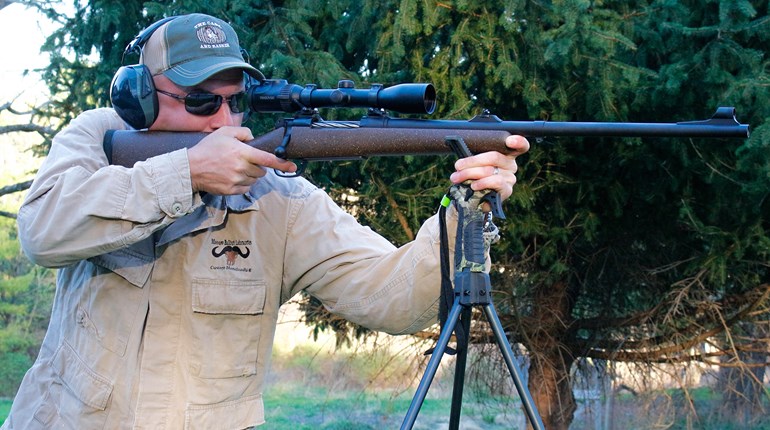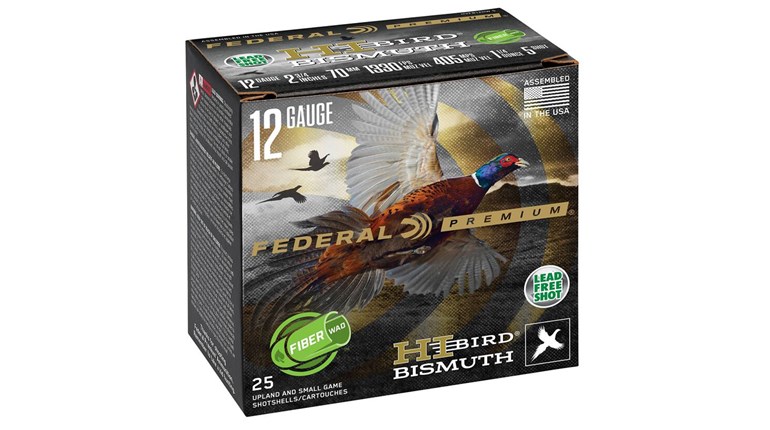
By Tom Hall, Douglasville, Ga.
Handicapped: the one word in the English language I thought would never apply to me. Boy was I wrong! My last three back operations left me with my spine 100 percent fused and zero movement in my neck. I can only walk with a waIker, and only for short distances. Laying in a rehab facility for six weeks, I had lots of time to think. It was there I came to the conclusion my hunting days were over. But, one day I started to watch a hunting show that featured guys in wheelchairs. So I said to myself, “If they can do it, so can I.”
After some investigation, I booked a hunt in Tennessee at The Wilderness Hunting Lodge. I arrived on a Sunday and met my guide, Bruce, the next morning. Shortly into my hard-luck story, I could tell Bruce was going to be the right guide for me. He had patience, empathy, and was very professional. I was there to hunt pigs, so he set me up next to a blind. I, of course, could not climb into it. The first day I saw nothing. The second day, I shot a good example of a Russian boar. After getting back to New York (I now live in Georgia), I gave my trial hunt a lot of thought. Maybe I could continue to hunt, if certain factors were met.
First of all, I needed the right equipment. My arms have been affected by so much nerve damage I cannot hold a rifle. So, I purchased a BOG DeathGrip Tripod—a great piece of equipment! The second item I purchased was a completely adjustable outdoor chair. Then I started to put in a lot more time at the range. Using the tripod and chair became second nature with a little practice.
ln the last five years, I have hunted at The Wilderness Hunting Lodge four times. On every hunt, except for one, I was successful getting an animal. After all, it is hunting!
Last year, I also booked a hunt at another hunting lodge. It was a complete disaster due to the guide. I don’t think this guy knew what a compass was; he definitely forgot how to read and use one. He was totally lacking in patience and empathy, and had zero sense of humor. I left after the first day as no one was happy.
In November 2022, I booked a hunt for an animal unfamiliar to many people, the scimitar oryx. The scimitar oryx is an animal that was imported into the U.S. in the early 1900s. Ranchers in Texas had the foresight to bring in many animals that were on the brink of extinction. The list includes the oryx, fallow deer, axis deer, black buck and the aoudad. These men of vision deserve a lot of credit from the hunting community.
The scimitar oryx weighs in around 450 pounds for bulls, and 300 pounds for cows. Their color is an off-white with some brown spots. Of course, their most striking feature are their coal black horns. It is a cousin to the gemsbok (also an oryx), from southern Africa. I shot a nice bull in 1991 in Namibia.
Opening morning in November 2022 found me and nephew-in-law Danny tucked in behind a grove of trees, overlooking a large field. At about 11 a.m., there was movement at the far end of the field. Soon, out came four oryx slowly feeding. Danny and I were well hidden, and the wind was directly in our faces. We watched them feed down the field about 130 yards out. As hard as we looked, we could not tell a bull from a cow. After about an hour of drooling over those long black horns, I finally decided on one. The 100-grain put the oryx down, dead before it hit the ground. Turns out, mine was a cow. I am having the hide made into a rug and the skull turned into a European mount. In summary, to be a hunter with disabilities one must have a strong desire to succeed. Hunting is hard, and is made harder if you do not have total use of your body. It helps if you buy equipment to make the hunt go easier. Buy the best equipment you can afford. Last but not least, find an outfitter and guides who have taken out handicapped people in the past and have some understanding of what is needed to achieve successful hunts. Remember, where there’s a will, there is a way.
Do you have an exciting, unusual or humorous hunting experience to share?
Send your story (800 words or less) to [email protected] or to American Hunter, Dept. MH, 11250 Waples Mill Road, Fairfax, VA, 22030-9400. Please include your NRA ID number. Good quality photos are welcome. Make sure you have permission to use the material. Authors will not be paid, and manuscripts and photos will not be returned. All material becomes the property of NRA.













